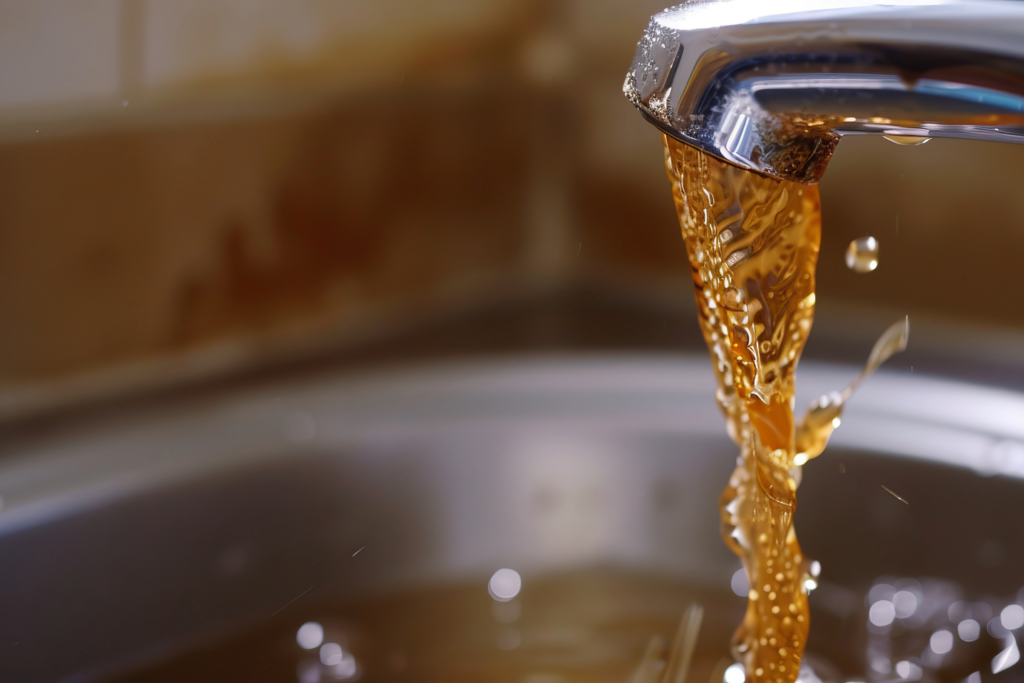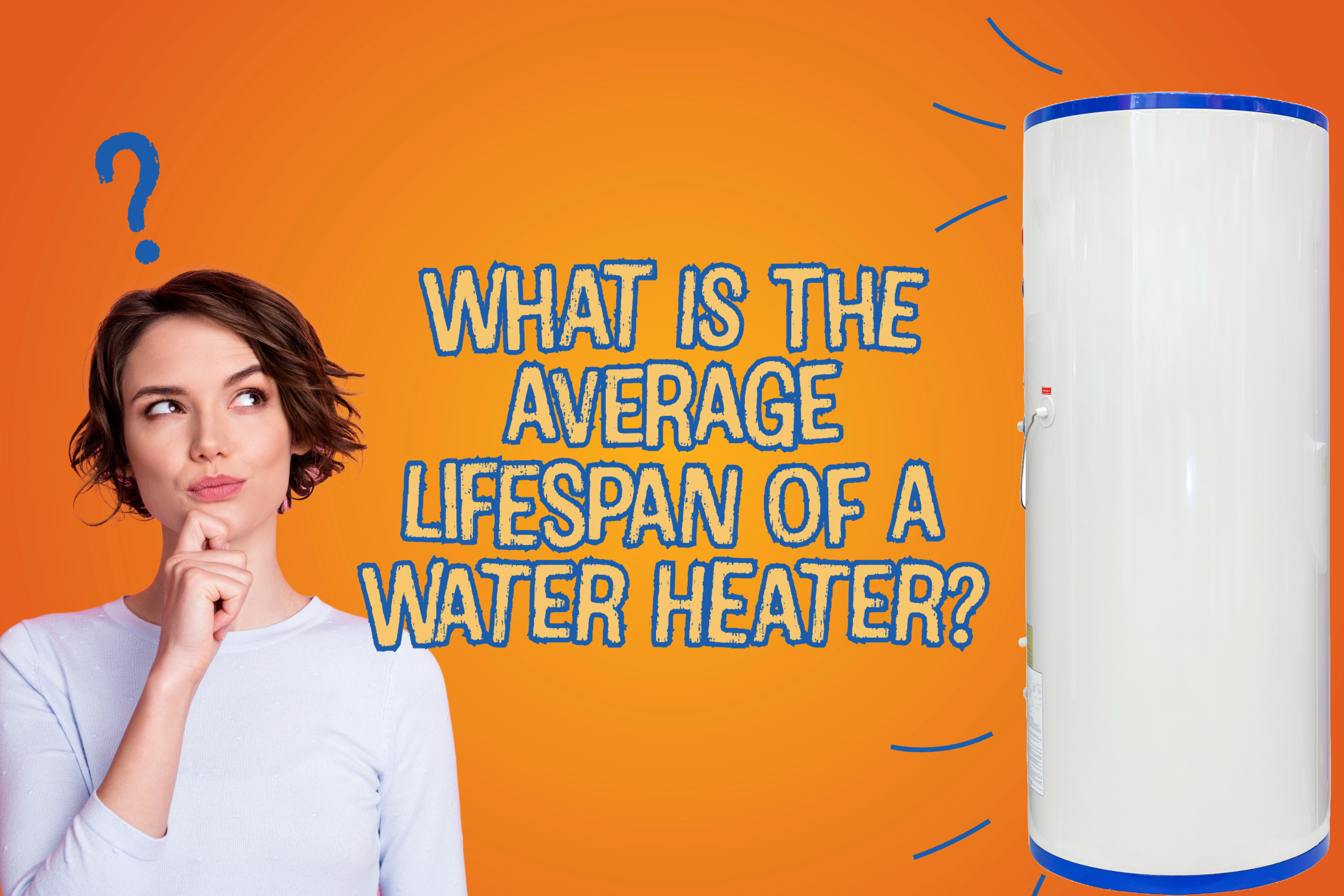If you’ve got some water heater issues on your hands, you’ve come to the right spot! As your locally trusted plumbing services partner, we understand how overwhelming this can be – even more so if you have never been down this road before. Sometimes, it’s hard to know what questions you should ask regarding your water heating unit. For example, should you opt for repair or replacement? When should you start planning for a water heater replacement? The cold hard truth is, there is a lot to know about your water heater. But that’s what Huber Heights Plumbing & Drain is here for! So, let’s start with the most basic question today. “How long should my water heater last?”
How Long Does a Water Heater Usually Last?
To answer the question simply the general rule of thumb is about 8 years. Keep in mind that some water heaters can last longer than that (usually between 8 and 10 years). And in the case your water heater is 10 years old or more, it’s important to consider that it is likely at the end of its life and running on its last leg. If this is the case for you, planning accordingly before your water heater goes completely out is key to staying two steps ahead and knocking the element of surprise off the chart. (Afterall, no one likes to be caught off guard!)
What Things Impact a Water Heater Lifespan?
Keep in mind that there are several factors that can and will impact how long your water lasts. Knowing these factors will help you with proper and proactive maintenance of your unit.
- Water Usage – Your water usage significantly impacts the longevity of your water heater. Does this mean you should reduce your water use solely for this reason? Not necessarily, but it’s definitely an important factor to be aware of.
- Preventative Maintenance – When a unit is properly maintained, it is set up for long-term success, meaning it can last longer. This means that consistently missing your annual checkups and essential water heater flushes will accelerate your water heater’s wear and tear. You can proactively take care of your water heating unit by keeping up with your regular maintenance checks.
- Water Quality – Whether dealing with hard or soft water, the presence of minerals like calcium and magnesium can cause mineral buildup. This buildup not only affects efficiency but also the lifespan of your system.
- Installation Quality – Improper installation of a water heater can lead to quicker wear and tear, potential damage, and serious safety hazards for your home and family. For all your water heater needs, it’s essential to hire a licensed company who understands the intricacies of installation and maintenance.
- Equipment Quality – Choosing a cheaper, subpar brand for a frequently used appliance like a water heater won’t deliver the expected lifespan. Why? The materials used in the tanks and heating elements of these units significantly impact their performance levels. For optimal longevity and efficiency, investing in high-quality equipment is essential!
What Are the Signs That You May Need to Replace Your Water Heater?

- If the Water Is Rusty – A key indicator that your water heater may be nearing the end of its lifespan is discolored or rusty water flowing from your faucets. Similarly, if the water from your plumbing fixtures has a metallic odor or taste, it’s a signal that you should start exploring replacement options.
- If the Water Is Not Getting Hot – If your water heater is struggling to meet your household’s hot water demands, it could be due to sediment buildup or wear and tear. In this case, a replacement might be necessary.
- If the Water Is Leaking or Pooling Around the Base of the Unit – A leaking water heater typically leads to water pooling around the unit’s base. You need a professional to diagnose the issue immediately; a replacement may be necessary based on the problem’s source.
- If the Water Heater Is More Than 10 Years Old – As previously mentioned, the age of a water heater is a significant factor in determining whether it should be replaced. If your water heater is over 10 years old, a replacement may be the most prudent course of action for you.
- If the Water Heater Requires Frequent Repairs – While repairs can be a solution for certain issues, repeated repairs are not always advisable. Continuously opting for one repair after another may lead to spending more on your water heater than it’s worth. Instead, consider investing in a top-rated, energy-efficient unit that offers better value and performance in the long run.
What Type of Maintenance Can You Do to Prolong Your Water Heater’s Lifespan?
Since water heating makes up for an estimated 18% of a household’s energy expenses, it’s probably safe to assume that you want to make sure your own water heater stays up to date and runs smoothly.
By keeping up with your regular maintenance, you can help your water heater to run at its highest capacity, and as a result help it to keep running for as long as possible. Recommended water heater maintenance includes:
- You Should Flush Your Water Heater Regularly – When sediment accumulates, it can lead to overheating and other issues in your system. This not only shortens your unit’s lifespan but also results in costly repairs. By addressing this buildup, you can ensure optimal performance and longevity for your equipment.
- You Should Avoid Using High Water Temperatures – Excessively high-temperature settings on your water heater can wear it down faster, shortening its lifespan. To ensure optimal performance and longevity, it’s essential to manage your water heater settings carefully. Remember, maintaining the correct temperature not only protects your appliance but also maximizes its efficiency and value.
- You Should Prevent Rust Buildup on the Exterior – Rust buildup on the exterior of a unit can significantly reduce its efficiency and shorten its life expectancy. To maintain optimal performance and longevity, it’s crucial to address this issue promptly.
- You Should Stay Up to Date with Your Annual Maintenance – Don’t skip your annual plumbing inspections, even if they seem unnecessary. Staying up to date with these inspections ensures everything is running smoothly. A licensed plumber can thoroughly inspect your home, identify minor issues before they become major problems, and help prevent potential plumbing disasters.

It’s a good idea to keep track of your water heater’s age so that you can plan before the time comes to start considering your replacement options. If you need help figuring out how old your water heater is, or perhaps you’d like to get a free water heater estimate. Whatever your concern or question is, we are here for you!
You can count on Huber Heights Plumbing & Drain for all your water heating needs at (937) 764-3381, or schedule an appointment online now by clicking here!




